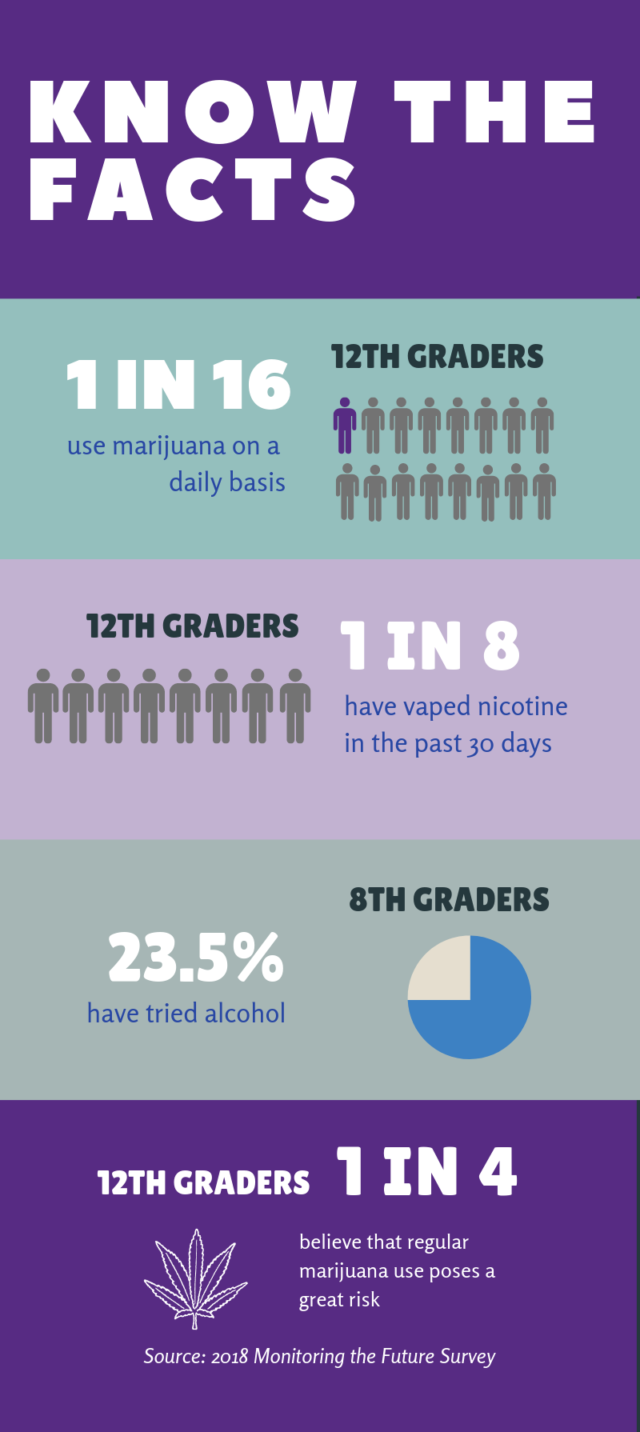Substance Abuse Rehab: A Full Overview to Recovery
Substance Abuse is one of one of the most pressing health and social obstacles dealt with by individuals and communities worldwide. It typically begins as a coping device for emotional distress, injury, or anxiety, however can quickly advance into a dependency that influences every area of life-- psychological health, partnerships, employment, and overall health. The consequences of dependency are serious and extensive, often bring about physical diseases, economic difficulties, and social seclusion. This is why rehabilitation programs exist: to assist individuals reconstruct their lives and redeem control over their futures.
Comprehending Substance Abuse and the Need for Rehab
Recovery centers are developed to deal with the origin of addiction as opposed to just the signs and symptoms. An extensive rehabilitation program involves detoxification, therapy, behavior modification, and education and learning on regression avoidance. Clients discover to identify triggers and develop healthier means to handle stress and anxiety and emotions. In most cases, rehab is not practically giving up medicines or alcohol-- it's about uncovering a new sense of purpose and balance. These centers offer a supportive setting where recovery is not only possible however lasting.
The course to recuperation calls for guts and dedication, yet with the appropriate therapy, also the most serious situations of addiction can be effectively handled. Rehab programs use an organized strategy that incorporates clinical proficiency, psychological assistance, and peer inspiration. Each program is customized to the individual's requirements, making certain a tailored experience that advertises enduring soberness. Whether someone struggles with alcohol, prescription drug, or immoral medications, entering a rehabilitation program is frequently the first and most critical action towards long-term recuperation.
Inpatient vs. Outpatient Rehab: Which Option Is Right for You?
When determining to look for therapy for Substance Abuse, one of the most vital options includes selecting in between outpatient and inpatient rehab programs. Both strategies have their benefits, and the best selection greatly depends upon the person's details needs, addiction seriousness, and individual situations. Inpatient rehab, likewise called household rehabilitation, needs people to live at the treatment center full time. This enables round-the-clock clinical supervision, structured routines, and a distraction-free setting perfect for intensive recuperation. On the various other hand, outpatient rehabilitation supplies better adaptability, allowing patients to attend treatment sessions during the day while still living in the house and keeping specialist or personal duties.
Inpatient rehabilitation is best suited for people who need medical detoxification, experience long-lasting dependency, or have previously slipped back. The immersive atmosphere ensures that patients are secured from outside temptations and stress factors that could trigger a relapse. Daily treatment sessions, clinical monitoring, and team activities assist patients remain concentrated on recovery. On the other hand, outpatient rehabilitation is commonly ideal for those with light to modest addiction or strong assistance systems in the house. This sort of program enables individuals to proceed working or going to school while getting regular therapy and support.
Inevitably, the choice in between outpatient and inpatient rehabilitation depends on multiple elements such as addiction type, clinical needs, and way of living. Some people also shift from inpatient to outpatient care as they advance in their recovery trip - addiction treatment. Both programs share the exact same ultimate goal-- assisting clients maintain and accomplish soberness-- yet the degree of structure and support differs. An extensive evaluation by addiction professionals can assist identify one of the most efficient treatment strategy, guaranteeing that each specific receives the treatment and interest they require to prosper beyond dependency

The Expense of Substance Abuse Rehabilitation and Economic Factors To Consider
Among one of the most common problems for families and people seeking dependency treatment is the expense of rehabilitation. While rates vary extensively depending upon the center, program type, and length of remain, it is vital to view rehab as an investment in one's wellness and future instead of simply an expense. The price of neglected dependency-- consisting of shed performance, lawful concerns, medical issues, and damaged connections-- often far exceeds the expense of expert therapy. Several rehab centers now use adaptable settlement options, insurance coverage, and financial help to make therapy more available.
Since they include holiday accommodation, meals, and 24-hour clinical supervision, inpatient rehabilitation programs often tend to be extra expensive than outpatient programs. Deluxe rehabilitation facilities with premium centers, exclusive areas, and alternative therapies can cost considerably extra, while community-based or charitable rehabilitations commonly supply economical or perhaps cost-free therapy choices. Outpatient rehab is usually much less pricey given that it does not need overnight stays, yet the total expense can still differ depending upon the duration and strength of the program. Some insurance policy intends cover full or partial prices for rehab, especially if the treatment is deemed clinically needed.
Financial barriers must never avoid a person from seeking aid. Numerous therapy facilities comprehend the financial stress that addiction triggers and agree to work with patients to create workable payment plans. Some provide gliding scale go to this web-site costs based upon income, while others obtain federal government financing to support those in demand. When reviewing costs, it's additionally important to think about the lasting advantages: enhanced wellness, restored connections, and an opportunity at a more effective and secure life. Recovery is valuable, and the price of rehab is commonly the trick to unlocking a future without the chains of addiction.
Attributes and Facilities of a Quality Rehab Center
The environment in which recovery takes place plays an essential role in the success of a rehabilitation program. A high quality rehabilitation facility is even more than simply a medical center-- it is a recovery refuge created to nurture the body, mind, and spirit. The very best facilities incorporate evidence-based medical therapies with comfy living arrangements and healing atmospheres. Clients should really feel safe, sustained, and inspired as they navigate their recuperation journey. Modern rehabilitation centers frequently include semi-private or private spaces, peaceful exterior areas, nourishing meals, and entertainment activities that advertise wellness and leisure.
Past convenience, the crucial features of a trusted rehabilitation center include specialist staff, customized treatment plans, and a wide variety of healing options (dual diagnosis rehab NJ). Multidisciplinary groups of doctors, therapists, therapists, and assistance staff collaborate to design a tailored program for each client. Evidence-based treatments like Cognitive Behavior Treatment (CBT), Dialectical Behavior Therapy (DBT), and motivational speaking with are incorporated with holistic treatments such as yoga, reflection, art treatment, and physical fitness programs. This incorporated technique addresses not simply the dependency itself, but likewise the psychological and psychological variables contributing to it
Additionally, the very best rehab centers emphasize long-lasting and aftercare support. When a person leaves the center; maintaining soberness needs ongoing support and accountability, recuperation doesn't finish. Numerous centers supply alumni programs, team therapy sessions, and area reintegration services to ensure continued progression. Facilities that provide a continuum of treatment-- from detox to outpatient support-- tend to generate the most effective outcomes. The general objective is to create a setting where individuals can recover completely, reconstruct their self-worth, and re-enter the globe with self-confidence and stability.
Benefits important Abuse Rehab Programs
Enlisting in a substance Abuse recovery program offers many benefits that extend far past conquering dependency itself. One of the most substantial advantages is the structured atmosphere that rehabilitation gives. People battling with dependency frequently reside in disorder or uncertainty, but rehab presents security and routine. Every aspect of everyday life-- from treatment sessions to dishes and remainder-- is intended with purpose, assisting individuals create self-control and uniformity. This framework becomes a foundation for developing a sober way of life and lessening the threat of regression after therapy.
One more significant benefit of rehabilitation is the specialist assistance readily available all the time. Dependency is not just a physical dependency; it's also a psychological and emotional battle. Within a rehab facility, people have accessibility to physician that can securely handle withdrawal signs, in addition to therapists who specialize in treating the emotional aspects of healing. This level of care ensures that clients are never ever alone in their battles. Team therapy sessions also provide a sense of area, enabling individuals to get in touch with others who recognize their obstacles and can share their experiences.
Substance Abuse rehab outfits individuals with lifelong devices for preserving soberness. With treatment, relapse, and education and learning avoidance planning, people learn to determine triggers, deal with stress, and make much healthier life choices. why not check here Rehabilitation helps them reconstruct damaged connections and discover enthusiasms and objectives that were lost throughout dependency. It's a transformative procedure that brings back self-confidence, emotional equilibrium, and hope. The supreme benefit of rehab is that it doesn't just conserve lives-- it rebuilds them, assisting individuals find their worth and develop a brighter, addiction-free future.
The Path Forward: Structure a Life Beyond Addiction
Healing does not end when the rehab program does-- it's a recurring process that calls for devotion, self-awareness, and support. After finishing treatment, individuals should discover to rehabilitate right into their day-to-day lives while maintaining the lessons they've acquired in rehab. Recommended Site This includes establishing healthy coping methods, staying clear of settings related to Substance usage, and bordering themselves with favorable influences. Lots of people continue with outpatient therapy or join support system like Narcotics Anonymous (NA) or Alcoholics Anonymous (AA) to stay accountable and connected to the recovery area.
A solid aftercare strategy is important for long-term success. Rehab facilities that supply follow-up therapy, peer assistance, and relapse prevention programs give people the most effective opportunity of preserving sobriety. Building a new way of living could entail going after education, volunteering, or discovering brand-new pastimes that reinforce favorable actions (dual diagnosis rehab NJ). Families additionally play an essential function in the healing procedure; when liked ones take part in family treatment and recovery education, they come to be an active component of the support group, decreasing the threat of relapse

Inpatient rehab, also known as household rehabilitation, needs clients to live at the treatment center full time. Inpatient rehab programs often tend to be a lot more costly than outpatient programs because they consist of lodging, meals, and 24-hour clinical supervision. Luxury rehabilitation centers with premium facilities, private areas, and alternative therapies can set you back substantially more, while community-based or charitable rehabs often give budget friendly or even free therapy options. Healing doesn't finish when the rehab program does-- it's a continuous procedure that needs assistance, commitment, and self-awareness. Rehab facilities that provide follow-up therapy, peer support, and relapse avoidance programs give individuals the ideal chance of preserving soberness.